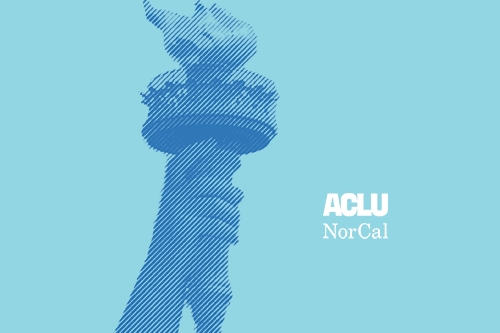What I Said in Court Today About DNA Privacy
Page Media

This morning the ACLU of Northern California's important DNA privacy case, Haskell v. Harris, was reheard by an 11-judge panel of the Ninth Circuit. I argued that the current California law – which says that DNA has to be collected from anyone arrested on suspicion of a felony, whether or not they are ever charged or convicted – is unconstitutional and wrong.
Collecting DNA at the point of arrest doesn't help solve crimes and is a huge invasion of privacy. It's why we have the 4TH Amendment, which protects against unreasonable search and seizure. DNA isn't just a simple identifier like the patterns of a fingerprint – it contains incredible amounts of genetic information.
Taking DNA from arrestees is especially problematic – many of these people won't even be charged, let alone convicted of a crime. One of our plaintiffs, Lily Haskell – who was with us today in the courtroom – was wrongfully arrested during a protest. She was never charged with a crime, yet she was forced to give a DNA sample, and threatened with a misdemeanor charge if she did not comply. Another plaintiff, Reggie Ento, was arrested after he returned stolen property to its rightful owner. When he told police that he didn't want them to take a sample, they threatened to take it by force. Now, their genetic blueprints are sitting in a massive criminal databank, susceptible to false positive matches and indefinite searching, even though they haven't done anything wrong.
The 11-judge panel of the Ninth Circuit was active and engaged. The judges asked a number of pointed questions, many of them centering on the idea of DNA being fundamentally different than fingerprinting, and whether DNA collection at arrest is a "search." That last was an easy answer -- every court that has looked at the issue says that DNA collection constitutes a search. The violations here are clear, and even commonsense. The government's argument that there are current limitations on what can (legally) be searched within DNA sample – didn't hold water against the notion that these statutes can and will change. One judge pushed back on that point from the government, noting that "history has taught us it doesn't always work out that way," in reference to what the government technically can and cannot do.
Another judge asked what the government loses in putting off DNA collection until the point of conviction. As we have pointed out, the government's own data show that DNA collected from arrestees doesn't help solve crimes any more than if it only took DNA from people it actually convicts. In fact, many of the DNA hits the government points to as examples of success are people with prior felony convictions, or who would have been convicted anyway after they had been arrested. If the government arrests someone and there is crime scene DNA evidence, the same probable cause that is needed to justify the arrest would also allow the government to get a warrant to take a DNA sample.
Today the New York Times published an editorial about our lawsuit, and it closes with an important point: "Taking samples from people arrested apparently results in a handful of cases being solved more quickly, but that benefit is small. It does not justify the substantial harm from taking DNA without probable cause from tens of thousands of innocent people in California each year. "
We agree. DNA technology has definitely revolutionized the criminal justice system, but just because a technology is new doesn't mean it can be used in a way that violates people's privacy. We're eagerly awaiting the ruling. Stay tuned.
Michael T. Risher is a staff attorney with the ACLU of Northern California.
